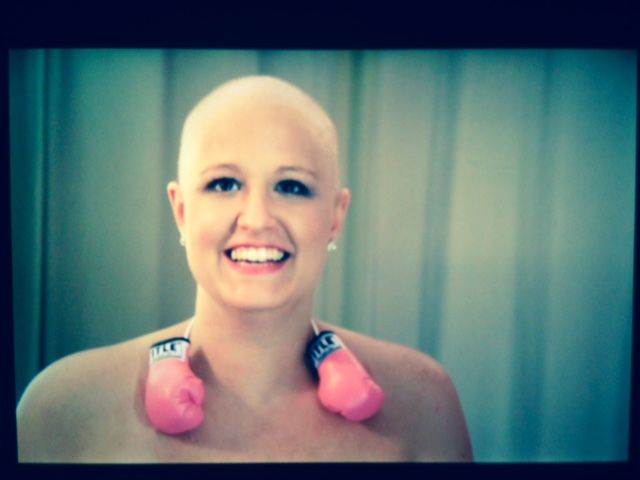Breast Cancer Survivor Shares Some Advice About the Power of Support
"But you're so young." These words have resonated loudly in my mind over and over again in the last year. Yes, statistically, a 28-year-old should be planning other major life events that do not include a double mastectomy, 16 rounds of chemotherapy, radiation, endocrine therapy, and several reconstructive surgeries. I can't help but think about how different my mid-twenties have been compared to most, and it's easy to let the anxiety, panic, and fear set in.
But I believe that no matter what life throws my way, it is important to handle it with faith, positivity, and a smile. Being 28 and newly diagnosed with breast cancer, I was naturally worried and scared about several things that were about take place. But through the amazing support of family, friends, and a wonderful boyfriend, I realized hair will grow back, one day I will have a female figure again, and most importantly I WILL BE CANCER FREE!!
A loving and strong support unit is absolutely critical to anyone undergoing this type of life change. If you are helping a loved one fight cancer, here are a few ways to go above and beyond and show your unwavering support.
Be involved in the process. Cancer is a confusing time with lots of questions and difficult decisions. Attend doctor appointments, scans, surgeries, chemo treatments, support groups, or anything that will make your presence known.
Keep fun alive. If you’re dating someone with cancer or helping a friend through the process, it can get overwhelming. Obviously health is a priority, but it doesn't mean the fun or adventurous times have to end. If you can't travel, plan a staycation. Instead of a night on the town, plan a fun night in. A sense of normalcy is important during this time. In a neverending world of doctor appointments and chemotherapy sessions it’s nice to have something to look forward to outside of hospital walls. Conversation does not have to revolve around cancer either. Use this time to ask fun questions that you've never asked each other before.
Embrace physical changes. With hair loss, body changes, scars and other unpleasant side effects, it is very easy to lose confidence. But these changes are only temporary. To help your loved one overcome this challenging time, do something in solidarity like shaving or cutting your hair. My boyfriend shaved his head after I lost my hair to chemotherapy and it gave me the strength I needed to get through it.
Prepare for an emotional rollercoaster. Just like physical changes, emotional changes are a challenge. Depression, anxiety, and anger are just some of the many feelings that a cancer patient and a caregiver will face. There will be many tear-filled days and maybe even some setbacks, but assure your loved one that it is okay to express emotions. Offer your shoulder to cry on, ears to listen, and arms to comfort.
Take care of yourself. It is important to take time to unwind alone and do things independently or with other friends. This is so important because as a significant other/caregiver you need to maintain your identity outside of the cancer world, just like patients. Cancer-free days are needed when hospital visits aren't scheduled and medical jargon is not discussed. It's in these days that normalcy is recreated.
Amongst the millions of feelings that you and your loved one will feel and encounter on this journey there is another feeling that is essential to recovery and success in this situation: acceptance. Accepting that this is just a part of your journey and not a summation of your life events will help you push forward and maintain control.
